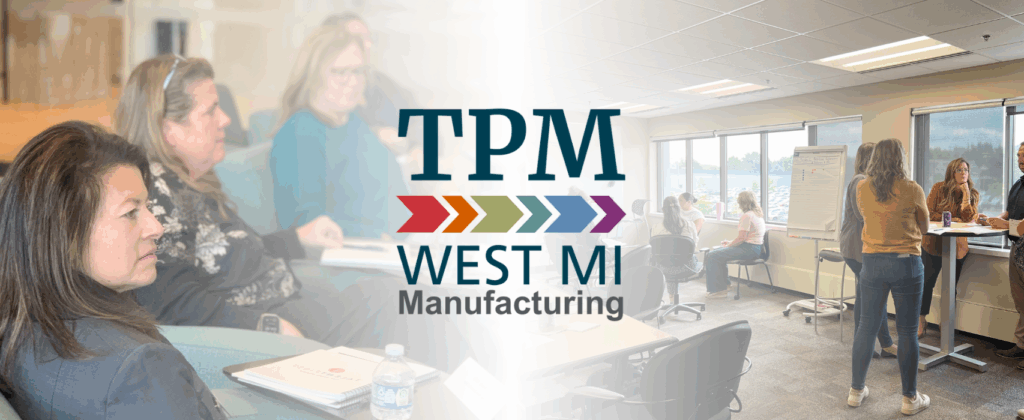Talent 2025 advocates for improvement to K-12 education in West Michigan, and early literacy is imperative to that cause. To prepare West Michigan students for the workforce, Talent 2025 recognizes the importance of supporting education and literacy at the earliest stages.
We all know that reading is essential, and studies show that it is especially important for young K-12 students. In fact, kids who can read by third grade are more likely to be college and career ready by the time they graduate high school. If they are not, research also shows that their chances of becoming proficient later are minimal.
Unfortunately, Michigan’s young students are falling behind, with reading proficiency rates steadily declining as other states improve. Last October, a law was passed stating that third-graders must be reading proficient in order to advance to the fourth grade — and while proficiency is critical, many schools struggle to help their students reach this goal. However, there are successful programs in West Michigan that are improving children’s reading proficiency.
Programs to Improve Early Childhood Literacy
To address the issue of students’ reading proficiency, Michigan educators and policy makers have researched programs and schools that are successful and ways to implement these tools in more schools.
Reading Now Network
In order to improve their students’ reading proficiency, superintendents from thirteen West Michigan counties formed the Reading Now Network. This network of educators and administrators conducted a field study of five schools testing well above their peers in reading based on MEAP data to learn what they were doing right.
The Reading Now Network’s study found many common practices among these five schools, and noted five best practices in particular.
- Uncompromising focus on reading: students read often, including during a guaranteed minimum 120 minutes of reading instruction.
- Committed use of relevant data: schools hold common and specific reading level goals for each grade, and principals and teachers know the reading level of every student.
- Strong and supportive leadership from principals who work with their teachers
- Classroom management focused on student learning: students understand their agendas and the established rules in their schools
- Collective responsibility for each student’s success: teachers and principals are invested in every student and their reading levels and goals.
The Reading Now Network field study team now shares these findings and best practices with interested schools on their website, which offers resources including videos and tools for self-study available to educators. Through these resources, educators can learn from these leading practices and improve students’ reading proficiency in their own schools.
Sound Reading Framework
One finding of the Reading Now Network’s study, and a common theme amongst early literacy research, is that students often fall behind on their reading progress during summer breaks if they are not reading at home. To combat this issue, a team of Reading Intervention Specialists at Grand Valley State University’s Charter Schools Office designed a summer program utilizing their Sound Reading Framework for Grand Rapids Public Schools (GRPS) students. Last June, 300 GRPS students took part in the Sound Reading Summer Program, which offers small class sizes and intensive reading and writing instruction for kindergartners through third graders.
The summer program utilizes the strategies identified by the Sound Reading Framework, a tool designed to help teachers meet students’ literacy needs in 120 minute periods of reading instruction. It identifies five components of literacy instruction: phonemic awareness, phonics, vocabulary, fluency, and comprehension. The program also emphasizes “the manipulation of sounds” and trains teachers in lesson plans and strategies for their classrooms.
What Can I Do?
Talent 2025 advocates for and supports programs like the Reading Now Network and Sound Reading. These proven programs are crucial for children’s learning and success later in life. You can help advocate for early childhood literacy by getting involved with Talent 2025’s K-12 Education Working Group.


